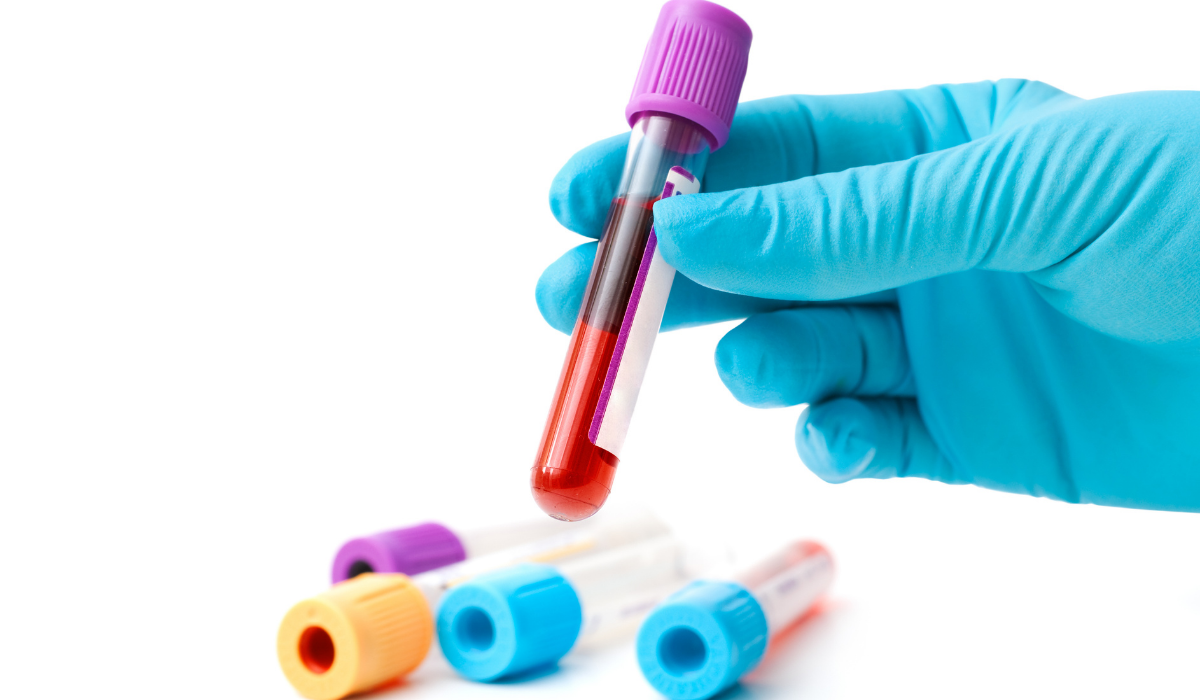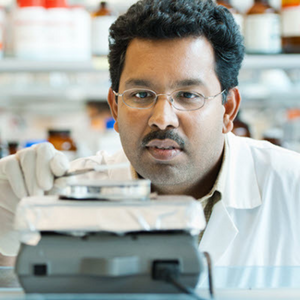
A team of Canadian scientists have proven it’s possible to safely convert the blood type in donor organs intended for transplantation. The findings are an important step towards creating universal type O organs, which would significantly improve fairness in organ allocation and decrease mortality for patients on waitlists.
The proof-of-concept study was published in Science Translational Medicine by a team of researchers from UBC, the Latner Thoracic Research Laboratories and Toronto’s University Health Network (UHN).
“With the current matching system, wait times can be considerably longer for patients who need a transplant depending on their blood type,” explains Dr. Marcelo Cypel, surgical director of the UHN Ajmera Transplant Centre and the senior author of the study.

Dr. Jayachandran Kizhakkedathu
Donor organs are currently matched to potential recipients based on blood type, among other criteria. Blood type is determined by the presence of antigens on the surface of red blood cells and blood vessels in organs – type A blood has the A antigen, B has the B antigen, AB blood has both antigens and O has none. If the blood type of a donor organ doesn’t match the blood type of the recipient, it can trigger an immune response and the organ is likely to be rejected.
In 2018, UBC researchers including Dr. Jayachandran Kizhakkedathu, a professor in the department of pathology and laboratory medicine, discovered a group of enzymes capable of removing antigens from the surface of cells.
For this new study, the enzymes were delivered to the lungs using the Ex Vivo Lung Perfusion (EVLP) circuit, successfully removing the antigens.
“Enzymes are Mother Nature’s catalysts and they carry out particular reactions,” said UBC biochemist Dr. Stephen Withers. “This group of enzymes that we found in the human gut can cut sugars from the A and B antigens on red blood cells, converting them into universal type O cells.”
“In this experiment, this opened a gateway to create universal blood-type organs. This is a great partnership with UHN and I was amazed to learn about the ex vivo perfusion system and its impact for transplants. It is exciting to see our findings being translated to clinical research.”
Dr. Kizhakkedathu and Dr. Withers went on to found ABOzymes Biomedical, a UBC spin-off company that is working to commercialize the enzyme technology.
“There are upcoming perfusion technologies available for kidneys already, so this technology should be transferable to kidneys, and potentially to other organs,” says Dr. Kizhakkedathu, also a member of UBC’s Centre for Blood Research.
Addressing organ wait times
In 2019, 250 Canadians died waiting for an organ transplant. Patients who are type O wait on average twice as long to receive a lung transplant compared to patients who are type A, explains Dr. Aizhou Wang, scientific associate at the Latner Thoracic Research Laboratories and first author of the study.
“This translates into mortality. Patients who are type O and need a lung transplant have a 20 per cent higher risk of dying while waiting for a matched organ to become available,” says Dr. Wang.
This disparity is also present for other organs where a patient who is type O or B in need of a kidney transplant will be on the waitlist for an average of four to five years, compared to two to three years for types A or AB.
“If you convert all organs to universal type O, you can eliminate that barrier completely,” Dr. Wang says.
The experiment
This proof-of-concept study was done at Latner Thoracic Research Laboratories. The experiment used the EVLP system developed in Toronto as a platform for the treatment. The EVLP system pumps nourishing fluids through organs, enabling them to be warmed to body temperature, so that they can be repaired and improved before transplantation.
Human donor lungs not suitable for transplantation from type A donors were put in the EVLP circuit. One lung was treated with a group of enzymes to clear the antigens from the surface of the organ, while the other lung, from the same donor, remained untreated.
The team then tested each lung by adding type O blood to the circuit, which would be expected to trigger an immune response and organ rejection. While the untreated lung showed signs of rejection, the lung treated with the enzymes did not.
“Having universal organs means we could eliminate the blood-matching barrier and prioritize patients by medical urgency, saving more lives and wasting less organs,” adds Dr. Cypel, who is also a professor in the department of surgery at the University of Toronto and the Canada Research Chair in Lung Transplantation.
The study was an interdisciplinary effort across multiple organizations in Canada, including UHN, University of Toronto, University of British Columbia and University of Alberta.
“By exchanging ideas across disciplines and across the country, we became one collaborative effort to tackle an important problem in organ transplantation,” says Dr. Wang.
The team of researchers is working on a proposal for a clinical trial within the next 12 to 18 months.
This story is adapted from a media release on the UHN website.